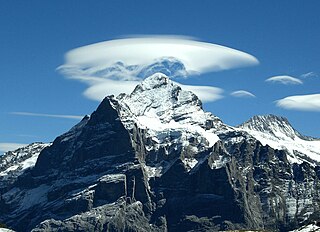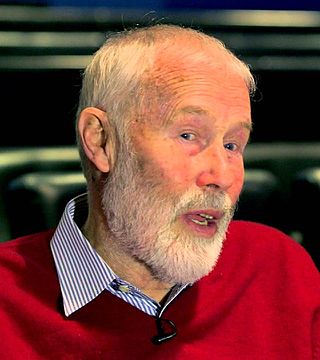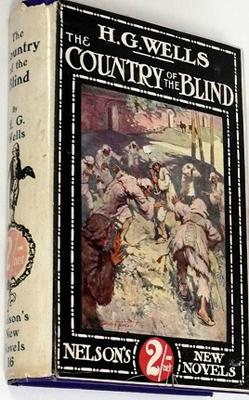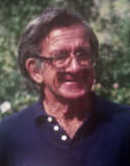
Mountaineering, mountain climbing, or alpinism, is a set of outdoor activities that involves ascending mountains. Mountaineering-related activities include traditional outdoor climbing, skiing, and traversing via ferratas that have become sports in their own right. Indoor climbing, sport climbing, and bouldering are also considered variants of mountaineering by some, but are part of a wide group of mountain sports.

Tenzing Norgay, born Namgyal Wangdi, and also referred to as Sherpa Tenzing, was a Nepali-Indian Sherpa mountaineer. He was one of the first two people known to reach the summit of Mount Everest, which he accomplished with Edmund Hillary on 29 May 1953. Time named Norgay one of the 100 most influential people of the 20th century.

The Wetterhorn is a peak in the Swiss Alps towering above the village of Grindelwald. Formerly known as Hasle Jungfrau, it is one of three summits on a mountain named the "Wetterhörner", the highest of which is the Mittelhorn and the lowest and most distant the Rosenhorn. The latter peaks are mostly hidden from view from Grindelwald.

Shishapangma, also called Gosainthān, is the 14th-highest mountain in the world, at 8,027 metres (26,335 ft) above sea level. In 1964, it became the last of the 8,000-metre peaks to be climbed. This was due to its location entirely within Tibet and the restrictions on visits by foreign travelers to the region imposed by Chinese authorities.

Anatoli Nikolaevich Boukreev was a Soviet and Kazakhstani mountaineer who made ascents of 10 of the 14 eight-thousander peaks—those above 8,000 m (26,247 ft)—without supplemental oxygen. From 1989 through 1997, he made 18 successful ascents of peaks above 8000 m.

Sir Christian John Storey Bonington, CVO, CBE, DL is a British mountaineer.

Saser Kangri is a mountain in India. It is the highest peak in the Saser Muztagh, the easternmost subrange of the Karakoram range. Sasir Kangri is located within Ladakh, the northernmost union territory in India.

David Finlay Breashears is an American mountaineer, filmmaker, author, and motivational speaker. In 1985, he reached the summit of Mount Everest a second time, becoming the first American to reach the summit of Mount Everest more than once. He is perhaps best known as the director and cinematographer of Everest (1998)—which became the highest-grossing IMAX documentary—and for his assistance in the rescue efforts during the 1996 Everest disaster, which occurred during the film's production.

Erik Weihenmayer is an American athlete, adventurer, author, activist and motivational speaker. He was the first blind person to reach the summit of Mount Everest, on May 25, 2001. As a result of this accomplishment he was featured on the cover of Time magazine. He also completed the Seven Summits in September 2002, one of only 150 mountaineers at the time to do so, but the only climber who achieved this while blind. In 2008, he also added the Carstensz Pyramid thus completing the Eight Summits. Weihenmayer has also made noteworthy climbs up the Nose of El Capitan in Yosemite in 1996, and ascended Losar, a 2,700-foot (820 m) vertical ice face in the Himalayas in 2008.

Douglas Keith Scott was an English mountaineer, noted for being on the team that made the first ascent of the south-west face of Mount Everest on 24 September 1975. In receiving one of mountaineering's highest honours, the Piolet d'Or Lifetime Achievement Award, his personal style and climbs were described as "visionary".

Lino Lacedelli was an Italian mountaineer. Together with Achille Compagnoni, on 31 July 1954 he was the first man to reach the summit of K2.

Robert Edwin Hall was a New Zealand mountaineer. He was the head guide of a 1996 Mount Everest expedition during which he, a fellow guide, and two clients died. A best-selling account of the expedition was given in Jon Krakauer's Into Thin Air, and the expedition has been dramatised in the 2015 film Everest. At the time of his death, Hall had just completed his fifth ascent to the summit of Everest, more at that time than any other non-Sherpa mountaineer.

"The Country of the Blind" is a short story by English writer H. G. Wells. It was first published in the April 1904 issue of The Strand Magazine and included in a 1911 collection of Wells's short stories, The Country of the Blind and Other Stories. It is one of Wells's best known short stories, and features prominently in literature dealing with blindness.
Charles Raymond Greene was a British doctor and an accomplished mountaineer.
Gwen Mary Moffat is a British mountaineer and writer.

The 2008 K2 disaster occurred on 1 August 2008, when 11 mountaineers from international expeditions died on K2, the second-highest mountain on Earth. Three others were seriously injured. The series of deaths, over the course of the Friday ascent and Saturday descent, was the worst single accident in the history of K2 mountaineering. Some of the specific details remain uncertain, with different plausible scenarios having been given about different climbers' timing and actions, when reported later via survivors' eyewitness accounts or via radio communications of climbers who died later in the course of events on K2 that day.
Kalpana Dash was an Indian lawyer and mountaineer. She was the first Odia mountaineer to scale Mount Everest. She scaled Mount Everest on 21 May 2008, along with a team of five members from the United States, Canada and Nepal.
In Touch is a programme on BBC Radio 4 airing "news, views and information for people who are blind or partially sighted".
Niranjan Pranshankar Pandya is an Indian blind social worker and the secretary of Poona Blind Mens' Association, a non governmental organization working for the cause of visually impaired people of Pune and neighbouring areas. He was honored by the Government of India, in 2012, with the fourth highest Indian civilian award of Padma Shri.

Norman David Hardie was a New Zealand climber who was one of the climbers on the 1955 British Kangchenjunga expedition who first reached the summit of the 8,586-metre (28,169 ft) mountain, the third-highest mountain in the world.














